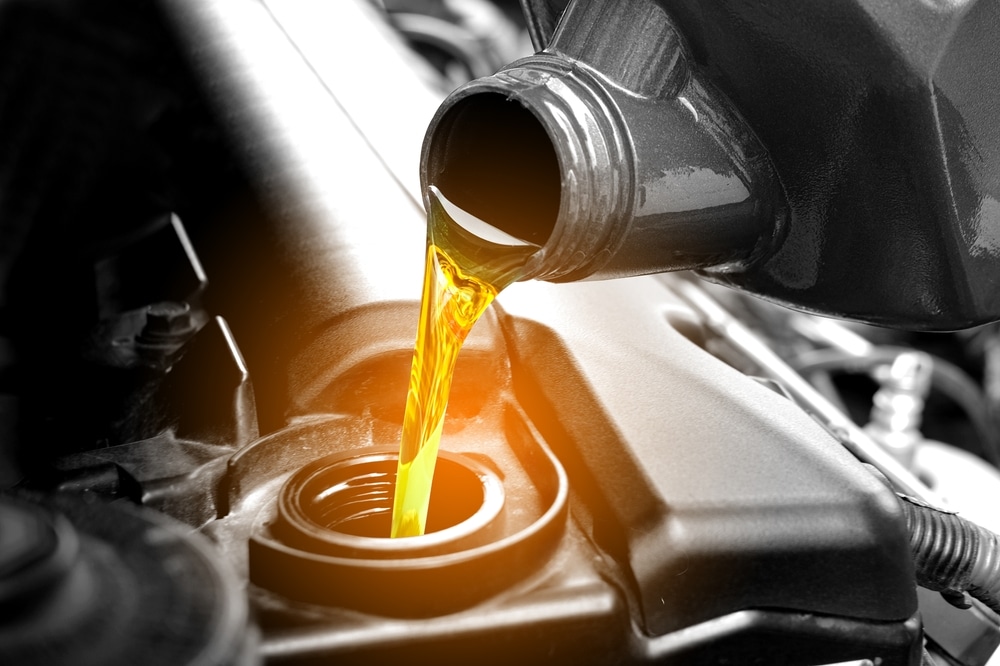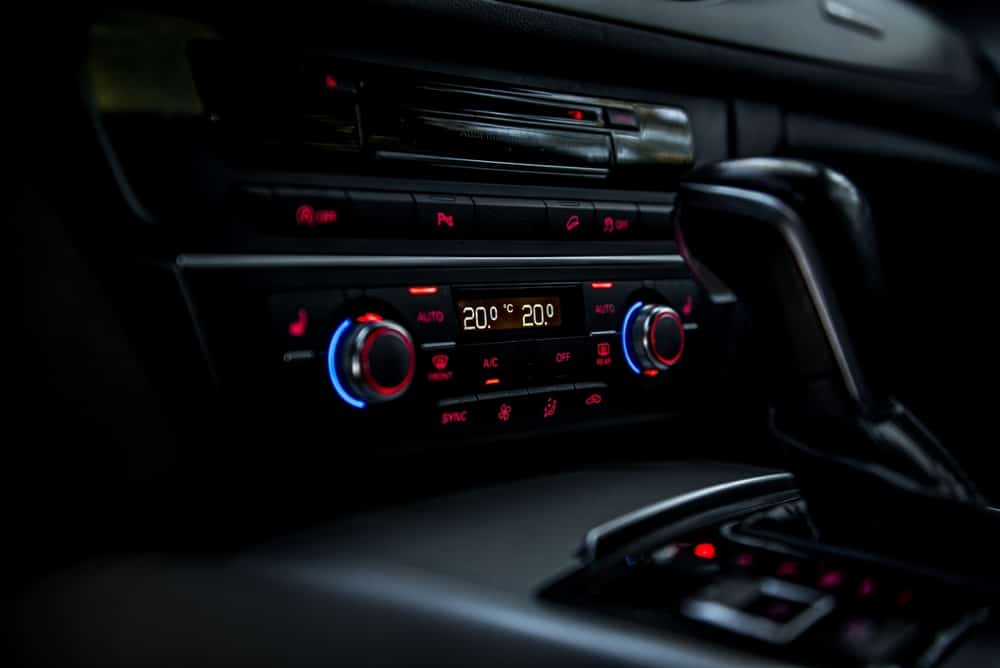VW Oil Change
Own a VW, or are you looking to purchase one? Either way, you won’t want to miss this blog post! Throughout this article, we cover everything you need to know about Volkswagen oil changes, why oil changes are important, and how to prevent oil problems.
At Fitch Autos, we understand the importance of keeping your VW as efficient as possible, regardless of its age or engine condition.
In this blog post, we want to remind you that frequent oil changes are essential, and neglecting them can lead to costly repairs.
Also, did you know that lubricating your engine is key to keeping it running smoothly? Engines can be slowly damaged by heat and friction, but proper lubrication prevents this.
With the help of our experts at Fitch Autos, keep your VW running at its best. Let’s get started!

Do I Need to Change the Oil in My VW Regularly?
Yes you do! There are several reasons why you should change your engine oil frequently.
Firstly, engine oil reduces friction and heat buildup by lubricating the engine’s moving parts. Oil becomes contaminated with dirt, metal particles, and other debris over time, reducing its effectiveness and causing engine damage.
Secondly, changing the oil regularly ensures that the engine receives fresh and clean oil, which provides optimal lubrication and protects against wear and tear.
As VWs are high-performance vehicles built for speed and agility, the engines require frequent oil changes since they generate heat and stress. So, it’s worth remembering that overheating, decreased performance, or even complete failure may occur if the engine’s oil is not changed regularly.
If you regularly change the engine oil in your VW, you can prevent significant damage to your vehicle and ensure its smooth operation for many years to come. To determine your VW’s best oil change interval, consult your owner’s manual.
The Intervals Between Volkswagen Oil Changes You Need to Know
Many newer VW models utilise a specific system that monitors various vehicle components to determine when maintenance and servicing are needed. Factors considered by this system include:
- Mileage: Along with tracking the number of miles driven, the system determines how often routine maintenance, such as oil changes and brake inspections, should be performed.
- Time: As certain components may need maintenance, even if the vehicle has not been driven for some time, the system also considers the length of time since the last service.
- Driver style: During acceleration, braking, and speed, the system monitors the driver’s behaviour to determine how much stress is placed on the vehicle’s components. The vehicle will wear out more quickly when driving aggressively, requiring more frequent maintenance.
- Conditions of the environment: Components of vehicles can be affected by environmental factors such as extreme temperatures and humidity. These factors are taken into account when determining maintenance requirements.
- Fluid condition: The system can determine whether the vehicle’s oil, coolant, and brake fluid must be changed or replaced.
In this way, the system provides a more accurate maintenance schedule to the owner by monitoring these factors. By regulating the time between maintenance or service, you can reduce the risk of unnecessary maintenance or potential damage to your VW.
We recommend following the manufacturer’s oil change schedule in the absence of the system in your VW. For example, Volkswagen vehicles typically require an oil change every 7,500 and 10,000 miles, although this can vary from model to model.
In any case, you can determine the maintenance requirements for your specific VW model regardless of whether it comes with the system.
At Fitch Autos, we offer personalised schedules, so there’s no need to worry! If you have any questions about any make or model of VW, we can answer them.
How to Choose the Correct Oil for Your VW
In order for VW vehicles to perform at their best and ensure their engines last for as long as possible, specific types of oil are required. Various kinds of oil are used in VW engines, depending on the model and engine type.
Synthetic oil is typically required for newer VW models. Synthetic oil not only provides superior lubrication, but it also lasts longer than conventional oil, which makes it a popular choice among VW owners.
For older VW models, conventional oils may be used. The oil should, however, meet VW’s specifications and be high-quality. LongLife III FE and LongLife IV FE are typically the two recommended oils from Volkswagen. Selecting the correct oil for your VW model is always important.
Viscosity is another important factor when choosing an oil. For optimal engine performance, VW recommends using the viscosity specified in the owner’s manual.
There are a lot of factors to consider here. Nevertheless, our VW experts at Fitch Autos can help you select the right type of oil for your VW. By using high-quality oils that meet VW’s specifications, we ensure your VW runs smoothly for years to come. For any questions regarding oil changes, please contact us today!

Watch Out for These Warning Signs When It Comes to Oil Changes!
When it comes to changing VW oil, we recommend following the manufacturer’s guidelines.
Sometimes, your VW may need an oil change sooner than expected. If your vehicle needs an oil change, look out for the following signs:
- Dashboard warning light: When it’s time for an oil change, an oil change warning light illuminates on the dashboard of newer VW models.
- Engine sounds: It is possible to hear noises or knocking sounds coming from the engine when the oil is not lubricating it properly.
- Exhaust smoke: Dirty or low oil can cause excessive exhaust smoke.
- Reduced fuel efficiency: Dirty engine oil can increase friction and reduce engine efficiency, thereby reducing fuel efficiency.
- The odour of burning oil: The smell of burning oil may indicate low or dirty oil and the need to change it.
If you notice any of the signs above, schedule an oil change as soon as possible. We can provide you with assistance to resolve any of the above problems at Fitch Autos.
Steps to Follow When Changing Volkswagen Oil
When changing the oil in your VW, there are several steps to follow. This involves draining the old oil, changing the oil filter, and adding new oil.
Changing the oil in a VW yourself isn’t impossible, but it requires knowledge and specialised tools. It can be messy and time-consuming.
For a safe and efficient oil change, we recommend leaving the job to our experts at Fitch Autos. We only use high-quality oil that meets VW’s specifications, and our VW technicians have the experience and knowledge to perform the oil change correctly.
Our expert oil change technicians at Fitch Autos will:
- Drain the old oil: We have a team of expert VW technicians who will drain and dispose of old engine oil properly.
- Oil filter replacement: We will also replace the oil filter with a high-quality VW filter to ensure the new oil stays clean.
- Adding new oil: We add the right type and amount of oil to your VW’s engine to ensure optimal performance and protection.
- Inspect other components: Our experts will also inspect other components of your Volkswagen, such as belts and hoses, while it is with us.
Something important to remember is that correctly disposing of used oil has a significant environmental impact. If used motor oil is not properly disposed of, harmful pollutants such as heavy metals, hydrocarbons, and other pollutants may be released into the environment.
We at Fitch Autos are committed to protecting the environment. We only use eco-friendly methods to dispose of used oil, filters, and other automotive fluids.
Through our collaboration with certified waste management companies, we minimise the environmental impact of these materials.
Why not leave the oil change to our experts at Fitch Autos and avoid taking risks yourself? Get in touch with our friendly team today to schedule an appointment!
In Conclusion
Oil changes are crucial to maintaining the health and longevity of your VW engine. If this important maintenance task is overlooked, costly repairs can be required, and engine failure may occur. So, it’s important that oil changes are made according to the manufacturer’s recommendations or by consulting VW specialists like our experts at Fitch Autos.
Newer Volkswagen models come with a system that provides a personalised and accurate maintenance schedule. The system will alert the driver when it’s time for an oil change based on factors such as mileage, time, driving style, and environmental conditions.
You should, however, be on the lookout for warning signs that might indicate an oil change is due sooner than expected. Several signs indicate an oil change is necessary, including engine noises, black smoke, and decreased fuel economy.
Our experts at Fitch Autos can provide the best care for your VW. In addition to providing high-quality oil changes, we guarantee that used oil and filters are disposed of in an environmentally friendly manner. Let our team help you today by calling Fitch Autos today.


